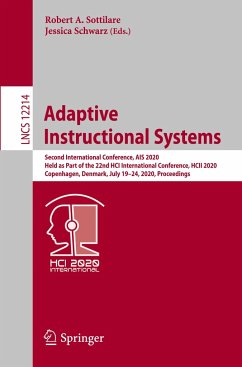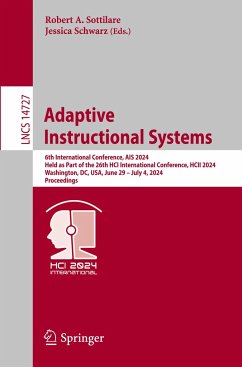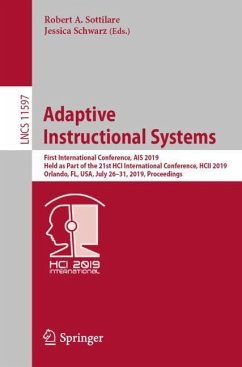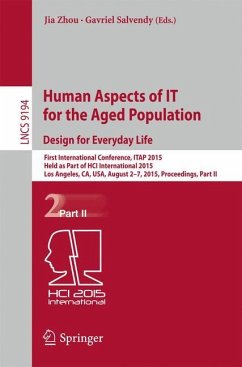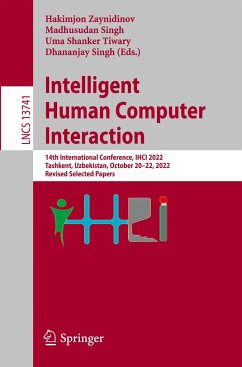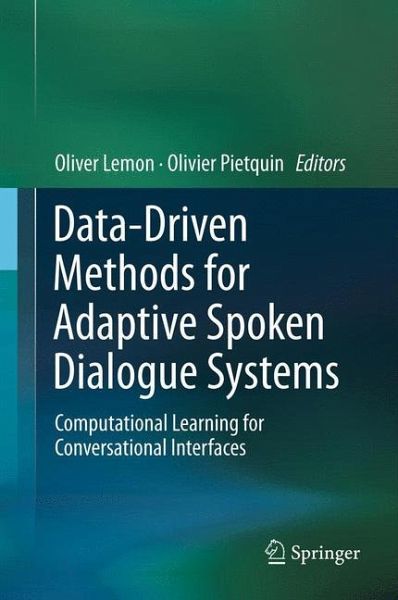
Data-Driven Methods for Adaptive Spoken Dialogue Systems
Computational Learning for Conversational Interfaces
Herausgegeben: Lemon, Oliver; Pietquin, Olivier

PAYBACK Punkte
38 °P sammeln!
Data driven methods have long been used in Automatic Speech Recognition (ASR) and Text-To-Speech (TTS) synthesis and have more recently been introduced for dialogue management, spoken language understanding, and Natural Language Generation. Machine learning is now present "end-to-end" in Spoken Dialogue Systems (SDS). However, these techniques require data collection and annotation campaigns, which can be time-consuming and expensive, as well as dataset expansion by simulation. In this book, we provide an overview of the current state of the field and of recent advances, with a specific focus on adaptivity.






